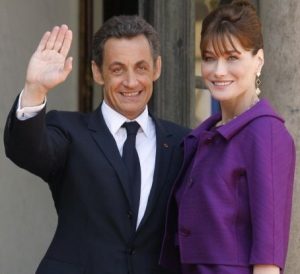 France’s government has gone through many different changes and it is currently on its fifth Republic. The nation has declared itself to be indivisible, secular and democratic. The constitution of the country provides for a separation of powers, and gives all rights of man and national sovereignty as defined in the Declaration of 1789.
France’s government has gone through many different changes and it is currently on its fifth Republic. The nation has declared itself to be indivisible, secular and democratic. The constitution of the country provides for a separation of powers, and gives all rights of man and national sovereignty as defined in the Declaration of 1789.
Today, the government of France is divided into an executive, legislative and judicial branch. The presidents of France shares their power with the Prime Minister, which they appoint. The cabinet, as well as the president, can be revoked by National Assembly, which is the lower house of Parliament. This is done through a censure motion that ensures the prime minister is always supported by the majority of the lower house.
The French parliament is made up of the National Assembly and the Senate. The parliament makes votes on the budget, it controls the action of the executive and it passes statutes. The statutes are then checked by the Constitutional Council, whose members are appointed by the president. These statutes must go along with the constitution in order to be passed.
Members for the council are also appointed by the president of the national assembly and the president of the senate. Interestingly enough, past presidents of France can actually be members of this council.
The judiciary system of France is based on civil law, which came from the Napoleonic codes. The judiciary branch of the government is divided into the judicial branch and the administrative branch. Each of these also have their own Supreme Court that is independent. The French government also includes various bodies that are meant to check for any abuses of powers by the government or its members, as well as any problems with independent agencies.
France is considered to be a unitary state. This means it is a state that is governed by one unit of central government that is supreme and handles all administrative divisions. The majority of countries in the world are unitary states. The United States by contrast is considered to be a federal state, in which power is shared by the federal government and the U.S. states.
In regards to the president, he or she must obtain power through a nationwide majority of non-blank votes on the first or second round of balloting. This ensures that the president is supported by over half of the voting population of France. The president is the top figure within French politics but they can be dismissed. The president also appoints the ministers, secretaries and ministers-delegate. If the political party of the president has control of parliament, the president is considered to be the dominant player in the government.
If the president’s opponents control the parliament, the president will see his dominance heavily limited since he or she must choose a prime minister and cabinet that reflects the parliamentary majority. When this happens, it is known as cohabitation and it has been quite common in French politics up until 2002.
This changed when the term of the president was previously seven years and is now five years. The terms in the National Assembly have always been five years. Now, elections are separated by only a few months. Currently, Francois Hollande is president of France, succeeding Nicolas Sarkozy, who took over from Jacques Chirac.
In the legislative branch of the government, parliament meets for one nine-month session each year. While the power of the branch has been lessened under the Fifth Republic, the National Assembly can still cause a government to fall but this has not happened since 1958. The cabinet of the legislative branch has a huge influence though in the agenda of the parliament. As well, members of parliament also have parliamentary immunity. This makes the members immune from most prosecutions. In order to prosecute, the immunity must be removed either by the Supreme Court or by the parliament itself.
The National Assembly in the legislative branch, is the principal body with 577 deputies elected every five years in local majority votes. All seats are voted in an election. Currently, the Socialist Party controls the majority of the seats in the National Assembly.
In the senate, senators are chosen by an electoral college of 145,000 local elected officials for five terms. Roughly 33 per cent of the Senate is renewed every three years. Currently, there are 321 senators, down from 346 in 2010. The legislative powers of the senate are limited since the National Assembly has the last word in disagreements between the two bodies of the legislative branch.